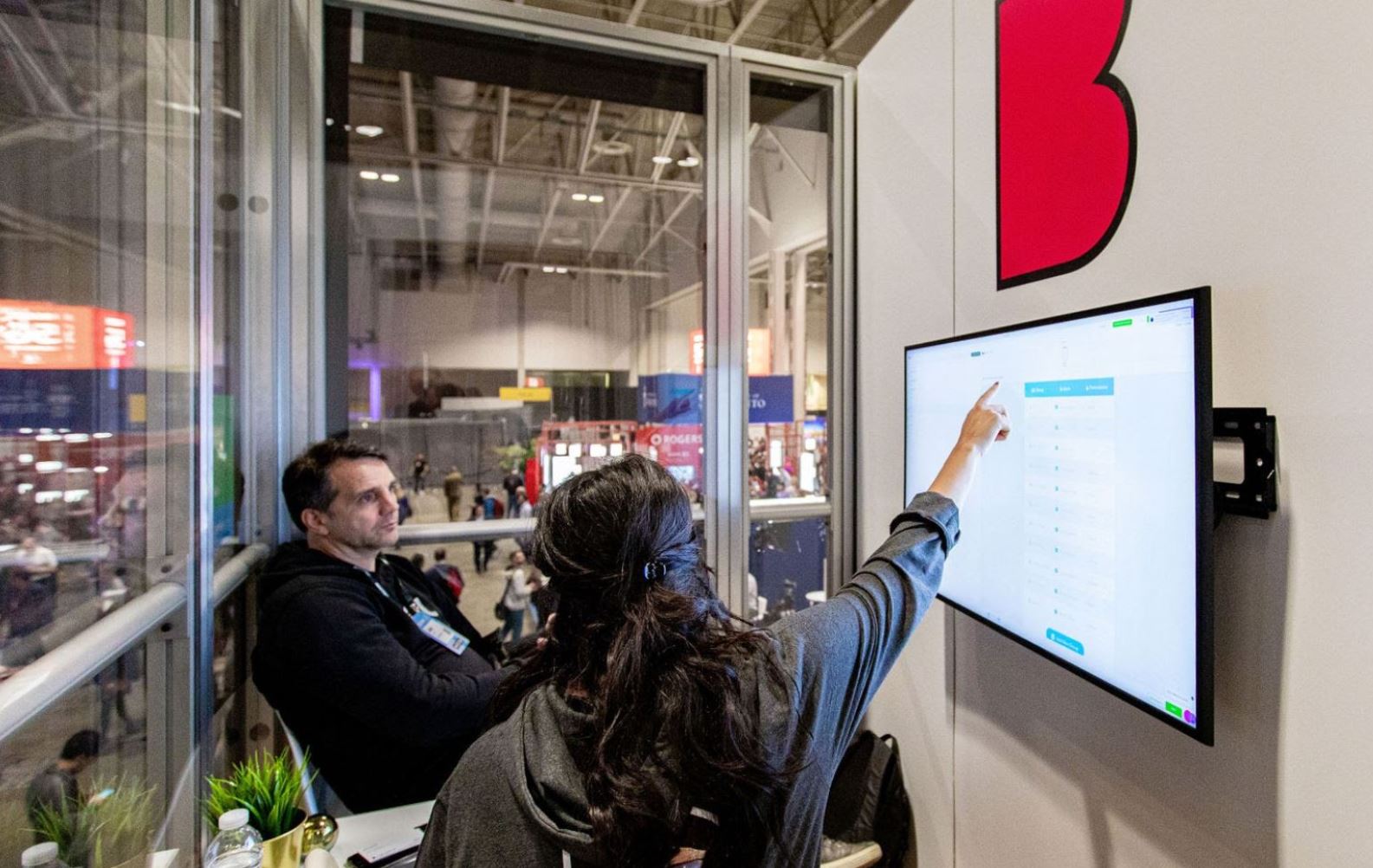“End users not technologies shape the market. Consequently, marketers need to stay abreast not only of technological developments, but also how people respond to them.” - Matt Haig, author of, Mobile Marketing - The Message Revolution
Considering the significant and growing demand for rich, highly engaging mobile experiences in 2020, how can SMBs and enterprises alike leverage the power of mobile? The key from our perspective is to kick things off quickly and improve sequentially over time based on your baked-in customer feedback loop.
#1. Low to no code development
Previously out of reach for many smaller businesses, mobile app development is now scalable for businesses of all sizes. Platforms like Builder.ai give businesses an accessible and scalable way to build a wide variety of mobile solutions. From Apple or Android mobile apps to responsive websites to wearables and even marketplaces, the sky’s the limit and there’s no need to learn code or manage a global team along the way. Selecting from existing templates, innovative companies can pick and choose features and manage scalability from zero to millions of users.
Take for example the Qure Android app. Built on our platform, the app helps connect patients, pharmacies and doctors onto a single platform – which can be a challenge anywhere in the world. Qure connects patients and health providers in rural Kerala, India. The app featured calling (audio and video) as well as AWS and S3 Integration. Mobile solutions like these provide opportunities for market-leading businesses to best serve their customers.
#2. The blurring line between native and web apps
Speaking of creating mobile experiences without technical knowledge – the shifting need for a mobile app (especially for a minimum viable product to complete initial user testing) is no longer necessary. Instead, organizations can use mobile websites to bridge the gap between their idea and software that tests their customers' needs in alpha or beta before launching the app to the global market.
Mobile websites are another entry point to development for SMBs. Mobile websites bring together the best of websites and mobile apps, giving users a ‘website’ experience with the feature set of an app (with notifications being a tool to continue communication even outside mobile apps!). Although mobile apps don’t require an internet connection, considering many customers have 4G connectivity, this isn’t a significant barrier. Indeed, websites circumvent customers’ regular updates of mobile apps as well. Since a mobile website extends cross-platform access to users, they give businesses an easier way to reach a broad audience. Our recommendation is to launch a minimum viable product (MVP) whether it’s with a mobile app or website.
Additionally, Progressive Web Apps, or PWAs, offer a similar hybrid mix of web and native mobile app development. This growing class of web app gives users a native app UI that they know and like but provides that access via a browser. These apps work even if a device is not online and also enables a range of web-friendly features, including push notifications.
#4. Artificial Intelligence (AI)
The opportunity for businesses to utilize AI technology is immeasurable. From using HR tools in hiring to using AI-powered tools in software development like Builder.ai, there are numerous ways to integrate AI.
There are countless ways that AI could impact mobile development. Besides the obvious, AI has countless technical solutions. In terms of mobile development specifically, one way AI can improve software is through feedback mechanisms like the DEFT analysis using AI. What is a DEFT analysis? A DEFT analysis helps forecast and identify trends using large amounts of data. An academic recently summarized it like this, “The DEFT does for trend projections what SWOT analysis provides for strategic planning.” Using such an analysis, AI can provide customers their highest quality user experience by enabling user behavior analysis and determining patterns of users’ behavior. Thereafter, designers and developers can leverage those insights to deliver the highest quality user experiences.
Another AI-powered tool that supports e-commerce is an enhanced chatbot to help solve users' challenges while saving the precious time and energy of customer support. Chatbots are already widely used in business transactions. According to Statista, in 2019 over 64% of business respondents believe that chatbots allow them to provide a more personalized service experience for customers. When it comes to ecommerce, this is far more than the previous result of 34% in 2017. These are just several of the countless ways AI will impact mobile development in the coming decade.
#5. Smarter, more personalized apps connected to the Internet of Things (IoT)
“If you want to cut through the fat and emerge as a brand your buyers want to engage with, your marketing has to seamlessly resonate with your buyer’s goals, interests, and preferences.” - Michael Brenner, Author and Keynote Speaker
With 5G connectivity, smarter phones and AI, the last area impacting the future of mobile development is IoT. Below, we outline four ramifications that IoT will have on future apps.
Firstly, IoT helps develop smarter and more sensor-rich apps. These sensors will enable customers to engage with and understand their personal behavior and data. This is already impacting both retailers and customers around their health decisions. For example, applications regularly communicate with their users to let them know how often they’ve been active or sedentary on a daily or weekly basis and will request users move to remain healthy. This data helps customers connect with their data in a highly personal way which increases customer loyalty.
Secondly, the IoT will help us remain always connected which will help customers make informed choices. Mobile apps becoming ‘smarter’ enables devices to remain always connected with global uptake in 5G connectivity. More connectivity means easier decision-making. Think, for example, if all your devices could connect seamlessly to each other and in doing so gathered and shared your most important daily choices with you. For business, this could mean daily decisions could become easier to make with enhanced, interactive dashboards. This leaves customers with better options for monitoring and controlling their data.
Next, location independence. With the help of smart devices, IoT-integrated devices can be easily controlled from anywhere. So, even when you’re in Bali (or at work) you could still access your important mobile applications (like being able to monitor your home as one example). This way, maintaining our presence somewhere specific will be less important and your permanent, consistent access to data will always be assured.
Lastly, personalization. With an abundance of data comes a wealth of opportunities especially for mobile-focused IoT applications. From including images and voices that match your personal tastes to regularly-recommended purchases (which Amazon already uses), your ecommerce choices will be more personalized. When businesses have more personalized data, they’re better able to pick and share about customer trends. For example, a company might ask, “Customers in your area recently bought 50 umbrellas, would you also like to stock up?”.
#6. Virtual and augmented reality (VR & AR)
Before we delve into this subject, let’s get specific. Here, we include both VR and AR into a general bucket, though they’re not the same. The major difference between VR and AR is that AR enables customers to still see the outside world and superimposes images or video on top of the ‘real word’ or their screens. Virtual reality, on the other hand, offers digital environments that shut out or replace entirely the real world with a headset.
In the coming decade, VR and AR will have a significant impact on mobile development in two distinct ways outlined below.
Firstly, VR and AR will create far more immersive experiences for prospective customers that will reduce purchase friction, helping customers engage with products in a totally new environment. VR has already dramatically impacted the real estate market, for example, as it offers customers’ virtual views inside houses and apartments sold by agents across the globe. These virtual experiences help inform customers about their purchase and can reduce the time they spend making buying decisions – as they’ve seen and in a real sensory way felt – how their purchase could impact their lives.
Secondly, VR and AR-focused applications enable deeper relationships with customers. These experiences will continue to increase personalization. What better way to create new market opportunities than by giving your customers unique and tailor-made experiences they can use, see and touch? This personalization will enable better customer experiences and even more rich datasets, which is a win-win.
Would you like to make the most of 2020? Now is the time.Don't wait another minute without making your dream idea come true. Develop it with Builder Studio right here.
Stories published by the editorial team at Builder.ai.












 Facebook
Facebook X
X LinkedIn
LinkedIn YouTube
YouTube Instagram
Instagram RSS
RSS


